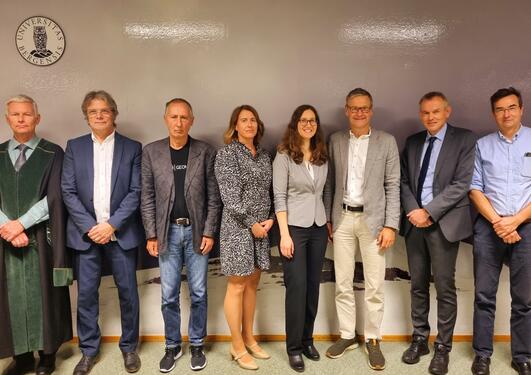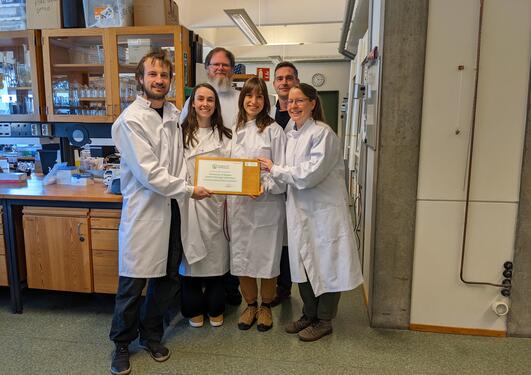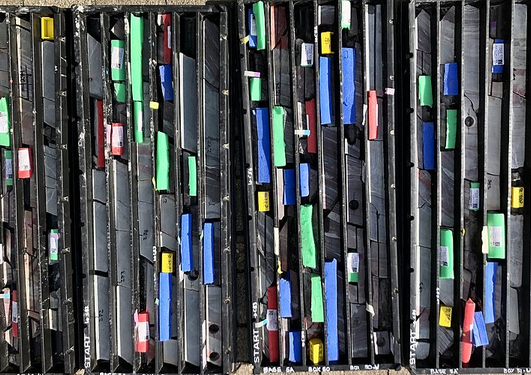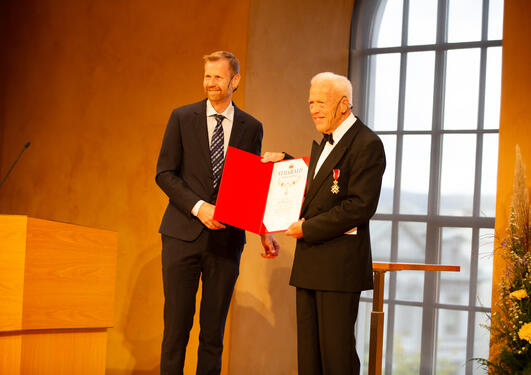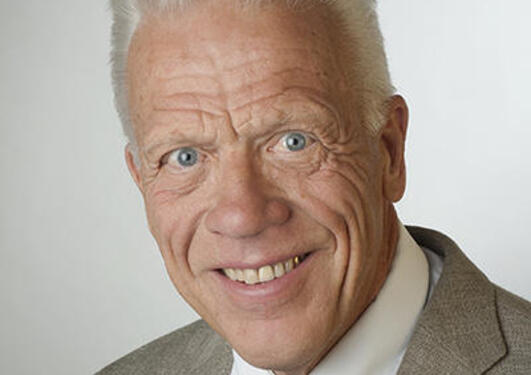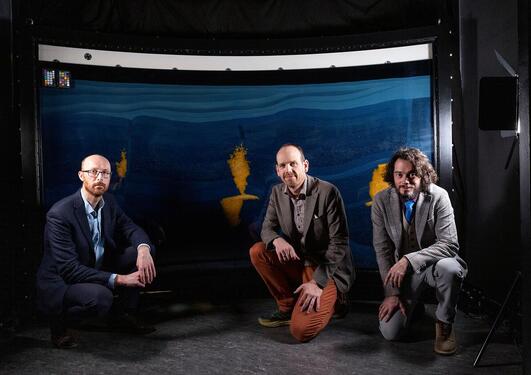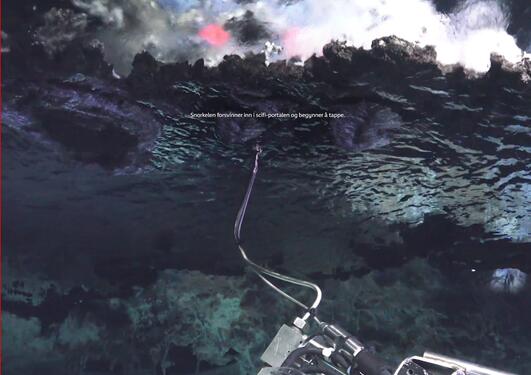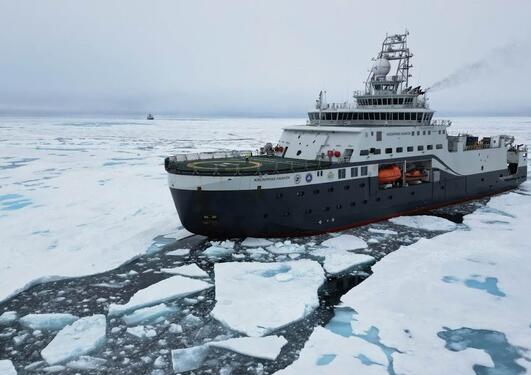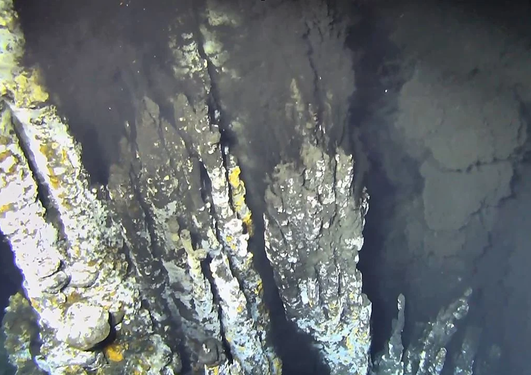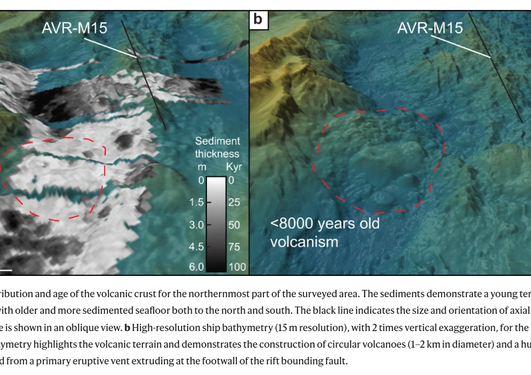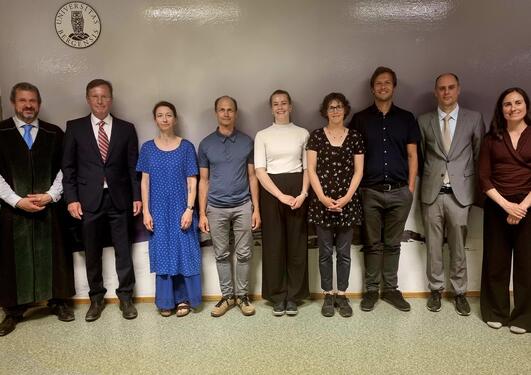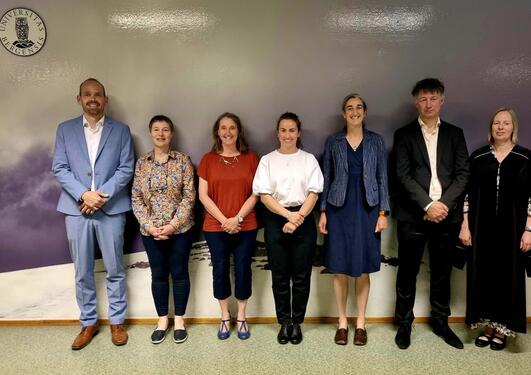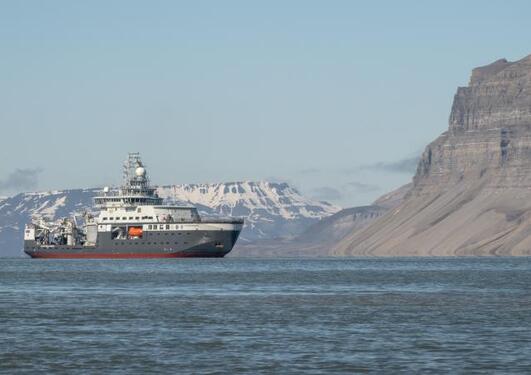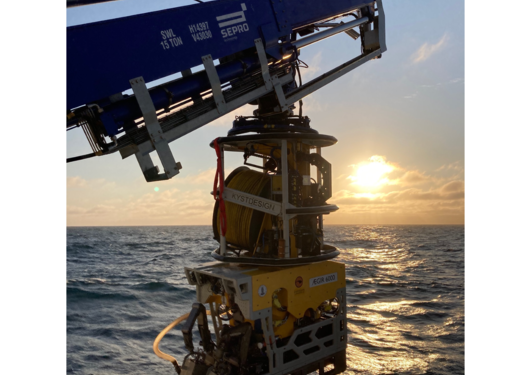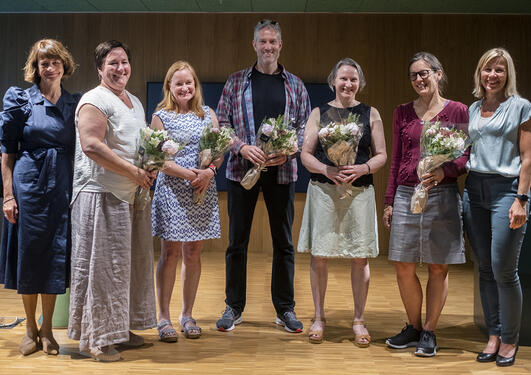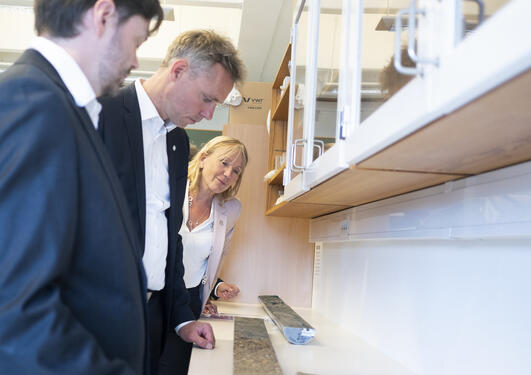Nyhetsarkiv for Institutt for geovitenskap
Saskia Tschache disputerte torsdag 28. september for doktorgraden med avhandlingen «Quantitative seismic interpretation in thin-bedded geology using full-wavefield elastic modelling».
Geomikrobiologisk laboratorium, UiB er den første offentlige forskningslaben i Norge som får miljøsertifisering fra My Green Lab. Arbeidet med sertifiseringen er gjort med støtte av Klimafondet ved UiB.
Hvordan så jordoverflaten ut for mer enn tre milliarder år siden? Hva slags mikrober levde der, og når begynte de å produsere oksygen? Og hvordan var temperaturen og sammensetningen av de gamle havene og atmosfæren? Store spørsmål som disse var det som trakk en gruppe på 41 forskere til solfylte Berlin i forrige uke, deriblant vår førsteamanuensis Desiree Roerdink.
- Det er en ære langt utover det jeg noen gang kunne drømme om. Det er også en stor ære for Universitetet i Bergen. For jeg har jo ikke gjort det alene. Mange forskere, studenter og hele Institutt for Geovitenskap har jo bidratt, sier professor emeritus Jan Mangerud som ble utnevnt til Ridder 1. klasse av Den Kongelige Norske St. Olavs Orden.
Under havbunnen finner man en relativt ukjent biosfære med dyp innvirkning på vårt globale miljø; fra luften vi puster inn, til balansen i det globale karbonbudsjettet. Den nye direktøren for Senter for dyphavsforskning ved UiB, Steffen Leth Jørgensen, forsker for å forstå disse prosessene.
Professor emeritus Jan Mangerud ved Institutt for geovitenskap, UiB og Bjerknessenteret for klimaforskning, er av H.M. Kongen utnevnt til Ridder 1. klasse av Den Kongelige Norske St. Olavs Orden. Utnevnelsen er en anerkjennelse av Mangeruds innsats innen geovitenskap.
Tverrfaglig samarbeid, prioritering av tid og ved å hoppe på mulighetene som har bydd seg, har professorene Martin Fernø, Jan Martin Nordbotten og Atle Rotevatn åpnet verdens øyne for porøse medier og mulighetene som ligger i karbonfangst og -lagring.
Sommerens tokt med G.O.Sars og Ægir er blitt laget en flott reportasje av i NRK
Forskere som deltok i GoNorth 2023-toktet har oppdaget et nytt hydrotermisk felt – et havbunnsområde med varmekilder – i Lenatrauet, en del av en midthavsrygg mellom Svalbard og Grønland.
Tidlig i august ble GONORTH-toktet i regi av flere norske institusjoner avsluttet. På sitt siste ROV-dykk ble et nytt hydrotermisk felt, kalt Ultima Thule, oppdaget på Lucky Ridge!
Håvard Stubseid og hans kolleger har nettopp publisert en ny artikkel i Nature communication.
Mandag 19. Juni 2023 forsvarte Åse Hestnes sin PhD avhandling: The post-Caledonian tectono-thermal evolution of Western Norway.
Fredag 16. June 2023 forsvarte Vilde Dimmen sin avhandling "Geologic controls on fluid flow and seismic imaging of faults in carbonate rocks - Insights from quantitative outcrop analysis and reflection seismic modelling" for PhD graden.
The ongoing GONORTH cruise is pushing the limits of deep sea exploration in the north.
De neste 5 årene skal et stort, tverrfaglig prosjekt ved UiB flytte kunnskapsfronten innen kunstig intelligens (AI) med særlig søkelys på pålitelig og etisk utvikling i feltet. Programmet er støttet av EU og skal utdanne 19 forskere fra ulike disipliner til fremtidens forsknings- og teknologiledere.
Kjersti B. Daae, Maria Jensen, Anne Bjune, Sehoya Cotner, Bjarte Hannisdal, Jorun Nyléhn og Vigdis Vandvik blir tatt opp i fakultetets pedagogiske akademi, og skal bidra til å øke kvaliteten på utdanningen ved fakultetet.
Forsknings- og høyere utdanningsminister Ola Borten Moe besøkte Realfagsbygget ved UiB for å lære mer om karbonfangst og -lagring, og studere Norges eneste kjerneprøver fra havvindområdene Sørlige Nordsjø II og Utsira Nord.
Sider
- januar 2026 (3)
- desember 2025 (5)
- november 2025 (1)
- oktober 2025 (3)
- september 2025 (4)
- august 2025 (1)
- mai 2025 (2)
- mars 2025 (1)
- februar 2025 (3)
- januar 2025 (1)
- desember 2024 (2)
- november 2024 (2)
- oktober 2024 (1)
- september 2024 (5)
- august 2024 (3)
- juli 2024 (4)
- april 2024 (2)
- februar 2024 (2)
- desember 2023 (3)
- november 2023 (4)
- oktober 2023 (4)
- september 2023 (4)
- august 2023 (4)
- juli 2023 (4)
- juni 2023 (5)
- mai 2023 (2)
- april 2023 (2)
- mars 2023 (1)
- februar 2023 (3)
- januar 2023 (5)
- november 2022 (8)
- oktober 2022 (1)
- august 2022 (1)
- juli 2022 (1)
- juni 2022 (8)
- mai 2022 (4)
- april 2022 (1)
- mars 2022 (9)
- februar 2022 (3)
- januar 2022 (3)
- desember 2021 (3)
- november 2021 (3)
- oktober 2021 (7)
- september 2021 (2)
- juli 2021 (1)
- juni 2021 (7)
- mai 2021 (6)
- april 2021 (1)
- februar 2021 (6)
- januar 2021 (4)
- desember 2020 (5)
- november 2020 (4)
- oktober 2020 (3)
- september 2020 (6)
- august 2020 (1)
- juni 2020 (1)
- mai 2020 (2)
- april 2020 (5)
- mars 2020 (6)
- februar 2020 (3)
- januar 2020 (3)
- desember 2019 (3)
- november 2019 (4)
- oktober 2019 (4)
- september 2019 (2)
- august 2019 (1)
- juli 2019 (1)
- juni 2019 (2)
- mai 2019 (2)
- april 2019 (2)
- mars 2019 (5)
- februar 2019 (7)
- januar 2019 (7)
- desember 2018 (4)
- november 2018 (1)
- oktober 2018 (6)
- juli 2018 (4)
- juni 2018 (6)
- april 2018 (2)
- mars 2018 (4)
- januar 2018 (6)
- desember 2017 (2)
- november 2017 (8)
- oktober 2017 (4)
- september 2017 (2)
- august 2017 (3)
- juni 2017 (5)
- mai 2017 (13)
- april 2017 (3)
- mars 2017 (5)
- februar 2017 (6)
- januar 2017 (2)
- desember 2016 (10)
- november 2016 (6)
- oktober 2016 (4)
- september 2016 (3)
- august 2016 (2)
- juli 2016 (1)
- mai 2016 (5)
- april 2016 (2)
- mars 2016 (5)
- februar 2016 (1)
- januar 2016 (3)
- desember 2015 (1)
- november 2015 (2)
- oktober 2015 (1)
- september 2015 (4)
- august 2015 (1)
- juli 2015 (1)
- juni 2015 (3)
- mai 2015 (1)
- april 2015 (6)
- mars 2015 (2)
- februar 2015 (2)
- januar 2015 (2)
- desember 2014 (3)
- november 2014 (3)
- oktober 2014 (7)
- september 2014 (4)
- august 2014 (2)
- juni 2014 (2)
- mai 2014 (4)
- april 2014 (2)
- mars 2014 (3)
- februar 2014 (6)
- januar 2014 (5)
- desember 2013 (3)
- november 2013 (3)
- oktober 2013 (10)
- september 2013 (6)
- august 2013 (4)
- juli 2013 (1)
- juni 2013 (5)
- mai 2013 (4)
- april 2013 (5)
- mars 2013 (2)
- februar 2013 (5)
- januar 2013 (2)
- desember 2012 (2)
- november 2012 (2)
- oktober 2012 (4)
- september 2012 (7)
- august 2012 (5)
- juli 2012 (3)
- juni 2012 (2)
- mai 2012 (4)
- april 2012 (4)
- mars 2012 (4)
- februar 2012 (4)
- januar 2012 (5)
- desember 2011 (4)
- november 2011 (9)
- oktober 2011 (3)
- september 2011 (1)
- august 2011 (1)
- juni 2011 (3)
- mai 2011 (2)
- februar 2011 (1)
- januar 2011 (1)
- desember 2010 (2)
- november 2010 (2)
- august 2010 (1)
- juni 2010 (1)
- mai 2010 (1)
- april 2010 (2)
- februar 2010 (2)
- januar 2010 (3)
- oktober 2009 (2)
- september 2009 (1)
- august 2009 (4)
- mai 2009 (1)
- februar 2009 (2)
